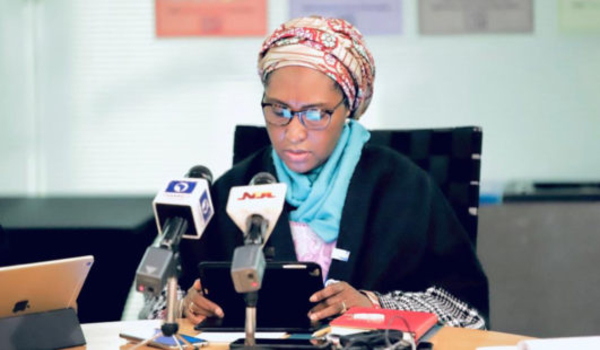Nigeria introduces 6% Tax on Digital Services for non-resident companies; Excise Duty on non-alcoholic, carbonated, sweetened berverages
Nigeria’s federal government on Wednesday disclosed that henceforth it would charge offshore companies providing digital services to local customers in Nigeria a six percent tax on turnover as provided in the 2021 Finance Act.
The Minister of Finance, Budget, and National Planning, Mrs. Zainab Ahmed, disclosed this during the public presentation and breakdown of the 2022 budget held in Abuja.
Speaking further on the digital services tax, she explained that it includes apps, high-frequency trading, electronic data storage, and online advertising, adding that, “this is introducing a turnover tax on a fair and reasonable basis.”
The new policy is contained in Section 30 of the Finance Act which amended the provisions of Section 10, 31, and 14 on VAT obligations for non-resident digital companies.
Ahmed said, “Section 30 of the Finance Act designed to amend section 10, 31 and 14 of VAT is in relations to VAT obligations for non-resident digital companies and the mechanism that will be used is to restrict VAT obligations mainly to digital non-resident companies who supply individuals in Nigeria who can’t themselves self-account for VAT.
“So if you visit Amazon, we are expecting Amazon to add VAT charge to whatever transaction you are paying for. I am using Amazon as an example. We are going to be working with Amazon to be registered as a tax agent for the FIRS.
“So Amazon will now collect this payment and remit to FIRS and this is in line with global best practices, we have been missing out on this stream of revenue.
According to her, the new law applies to foreign companies that provide digital services such as apps, high-frequency trading, electronic data storage, online and advertising, among others.
She noted that in line with Section 4 of the Finance Act, non-resident companies are now expected to pay tax at six percent on their turnover.
The minister who stated that the government was desirous of modernising taxes for its digital economy and to improve compliance, noted that digital non-resident companies do not need to be registered locally but would have an arrangement with the Federal Inland Revenue Services(FIRS) to collect and remit taxes in a bid to reduce the compliance burden.
She also disclosed that the federal government has introduced an excise duty of N10 per liter on all non-alcoholic, carbonated, and sweetened beverages in the country.
The minister stated that the charge on beverages was also a new policy introduced in the Finance Act which was signed into law by President Muhammadu Buhari on December 31, 2021, alongside the 2022 Appropriation Bill.
Ahmed pointed out that the new sugar tax was introduced to raise excise duties and revenues for health-related and other critical expenditures in line with the 2022 budget priorities.
The aimed according to her, was to also discourage excessive consumption of sugar in beverages, which contributed to diabetes, obesity, and other diseases adding that the Finance Act had also raised excise duties and revenues for the health sector.

